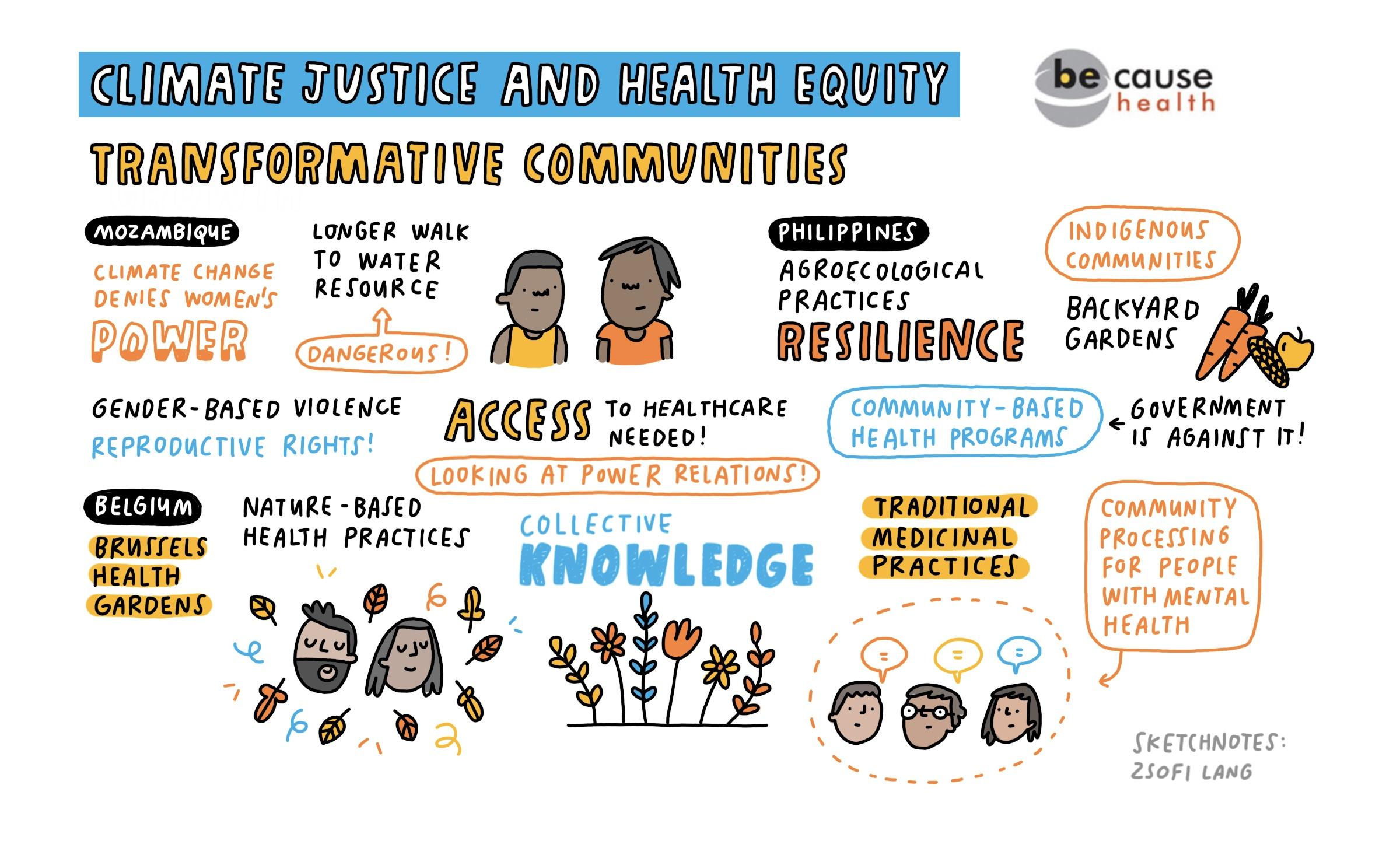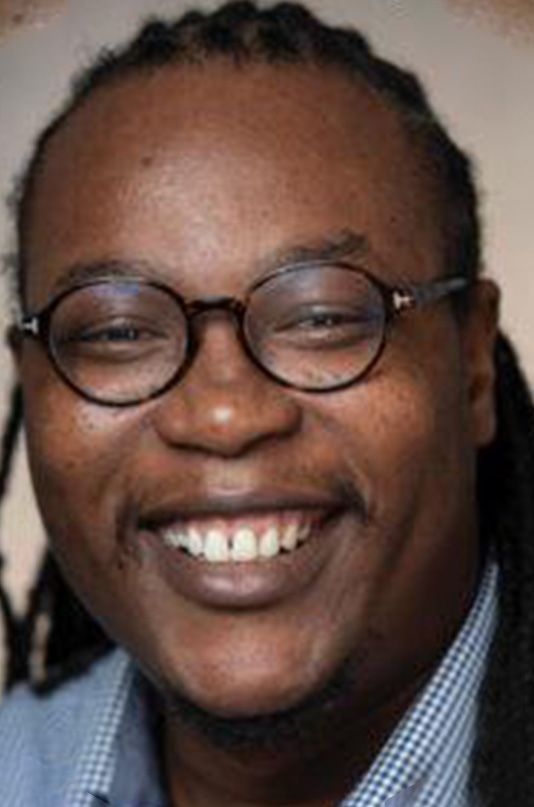
Willem van de Put from the ITM in Antwerp introduces the panel by moderating three short presentations. Afterwards, he leads the panel discussion with Q&A’s from the audience.
Jorge Matine from IPAS Mozambique points out that there is a direct link between the climate emergency and gender-based violence, crop failure and food insecurity, decreasing income, school drop-out, etc. The wellbeing and maternal and reproductive rights of women and girls are threatened by the pressure on the environment due to global warming. Because of this, women and girls aspire to accessible qualitative health services.

"We tend to think about melting glaciers, polar bears, plastic stuff in the sea when we talk about the impact of climate change. But we know it attacks real people, it attacks every aspect of their lives."
Rhoda Dalang, from the indigenous Igorot people from the Philippines, talks about their Community Based Health Programme (CBHP). This programme combines indigenous health knowledge (including mental health and primary health care) with scientific findings and modern politics. For indigenous people, the most important base for climate change resilience is the preservation of the natural resources in their ancestral lands. Advocacy for preservation of their ancestral lands is thus a claim for equal rights (including health rights).
Vitalji Petri is a pharmacist linked to the University of Mons. Three years ago, they opened a participative, intercultural, interactive and intergenerational “museum” on medicinal plants: the Brussels Health Gardens. This museum evolved towards interconnected learning spaces. The focus shifted from human health (medicinal plants) to what we, as humans, can learn from plants to stay healthy.
